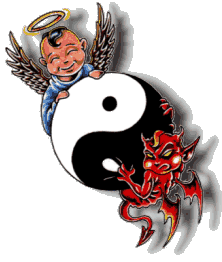
10. Zurich, Switzerland
Rank in 2009: 10
Food: Lunch at a restaurant: $25
Can of beer from grocer: $2.01
One kg of rice: $3.36
One dozen eggs: $5.81
Entertainment: Movie ticket: $16
Appliances: Washing machine: $974
9. Geneve, Switzerland
Rank in 2009: 9
Food: Lunch at a restaurant: $30
Can of beer from grocer: $2.02
One kg of rice: $3.81
One dozen eggs: $7.64
Entertainment: Movie ticket: $16
Appliances: Washing machine: $1,304
8. Copenhagen, Denmark
Rank in 2009: 7
Food: Lunch at a restaurant: $36
Can of beer from grocer: $2.10
One kg of rice: $4.85
One dozen eggs: $6.99
Entertainment: Movie ticket: $15
Appliances: Washing machine: $1,196
7. Kobe, Japan
Rank in 2009: 6
Food: Lunch at a restaurant: $16
Can of beer from grocer: $3.09
One kg of rice: $8.57
One dozen eggs: $2.81
Entertainment: Movie ticket: $20
Appliances: Washing machine: $470
The city has one of Japan's largest ports and has become home to many heavy machinery, iron and steel, and food product companies. According to the Japan External Trade Organization, 117 foreign and foreign-affiliated companies have offices in Kobe. As the price of Kobe beef, the style of high-grade meat named after the city, suggests, food is costly here, as are other living expenses.
6. Stavanger, Norway
Rank in 2009: 14
Food: Lunch at a restaurant: $33
Can of beer from grocer: $4.76
One kg of rice: $5.71
One dozen eggs: $6.34
Entertainment: Movie ticket: $15.50
Appliances: Washing machine: $749
5. Yokohama, Japan
Rank in 2009: 4
Food: Lunch at a restaurant: $17.39
Can of beer from grocer: $3.26
One kg of rice: $6.54
One dozen eggs: $3.72
Entertainment: Movie ticket: $19.50
Appliances: Washing machine: $630
About half an hour by commuter train from Tokyo, this port city has active shipping, biotechnology, and semiconductor industries. Yokohama is one of the world's most expensive cities, but companies here enjoy lower operating costs compared with the nearby capital. Nissan opened a new headquarters in Yokohama this year and reportedly will sell its office in Tokyo to cut costs.
4. Nagoya, Japan
Rank in 2009: 3
Food: Lunch at a restaurant: $19
Can of beer from grocer: $3.08
One kg of rice: $9.14
One dozen eggs: $3.33
Entertainment: Movie ticket: $20
Appliances: Washing machine: $621
Japan's fourth most populous city, Nagoya is also among the country's most expensive. The city ranks No. 1 for the cost of rice: $9.14 per kilogram, according to ECA International data. As Japan's auto hub, the Nagoya area is an important center of business: about 44 percent of automobiles produced in Japan are made here, according to the Greater Nagoya Initiative Center. Such companies as Toyota, Honda, Suzuki, Mitsubishi, Volkswagen, and General Motors have headquarters, manufacturing operations, or distribution points in the Nagoya region.
3. Luanda, Angola
Rank in 2009: 1
Food: Lunch at a restaurant: $47
Can of beer from grocer: $1.62
One kg of rice: $4.73
One dozen eggs: $4.75
Entertainment: Movie ticket: $13
Appliances: Washing machine: $912
2. Oslo, Norway
Rank in 2009: 8
Food: Lunch at a restaurant: $43
Can of beer from grocer: $4.71
One kg of rice: $5.66
One dozen eggs: $6.72
Entertainment: Movie ticket: $16
Appliances: Washing machine: $880
1. Tokyo, Japan
Rank in 2009: 2
Food: Lunch at a restaurant: $18
Can of beer from grocer: $3.37
One kg of rice: $8.47
One dozen eggs: $3.78
Entertainment: Movie ticket: $22
Appliances: Washing machine: $879
The strength of the yen has brought Tokyo back to the No. 1 spot on ECA International's ranking for the first time since 2005. In addition to the costs above, rent for a two-bedroom apartment for expats is typically more than $5,000 per month in Tokyo, according to data from EuroCost International. While visitors need more pocket money here than in any other city, the monthly consumer price index in Tokyo's wards has actually dropped year-on-year for 14 straight months as of May 2010, based on figures from Japan's statistics bureau.
Results acquired from "ECA International" (a global human resources company).
ECA’s ranking is based on a basket of 128 goods that includes food, daily goods, clothing, electronics, and entertainment, but not rent, utilities, and school fees, which are not typically included in a cost-of-living adjustment. ECA researchers and local partners gathered prices in September 2009 and March 2010 for domestic and imported brands that are internationally recognized—such as Kellogg’s cereal or Sapporo beer. While lower-priced goods and services are available in these markets, the study estimated the cost of supporting the standard of living expected by expatriate employees, says Lee Quane, ECA’s regional director for Asia. Some of the cities, such as Seoul and Stockholm, jumped up in the ranking as the local currency strengthened against the U.S. dollar. Quane says that while a slowdown in business may tempt employers to scale back compensation, "recessions only last so long" and retaining top talent in these places is critical to companies’ success when the global economy recovers.
Source: Japan_Now


No comments:
Post a Comment